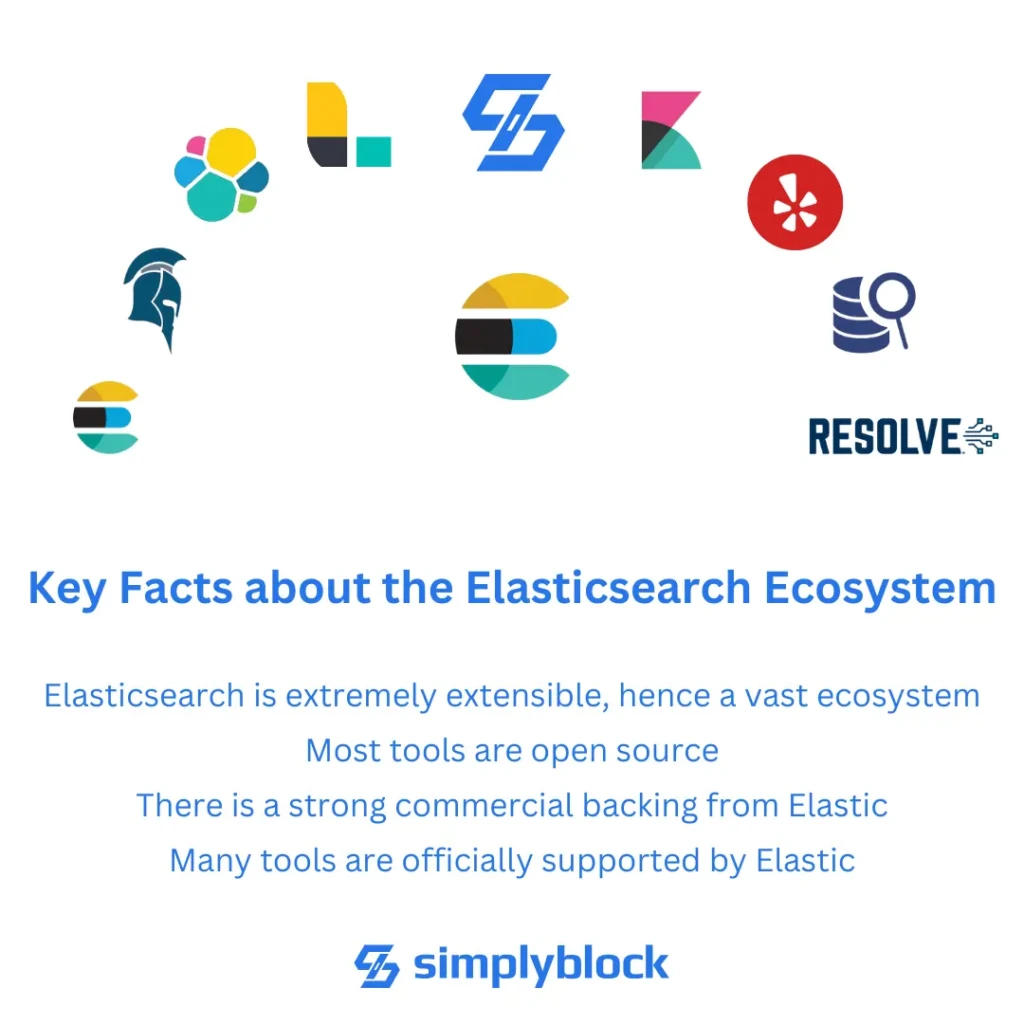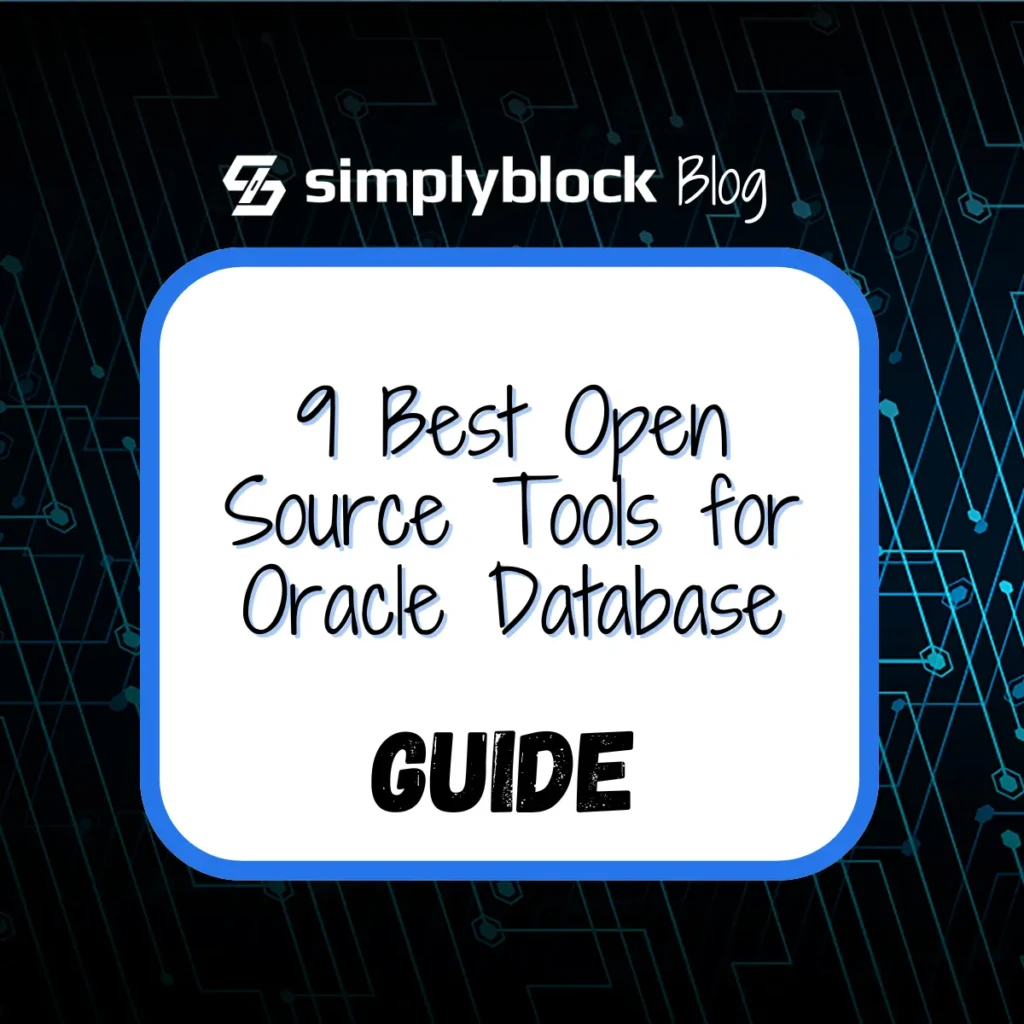
What are the best open-source tools for your Elasticsearch setup?
Elasticsearch has become one of the most popular search engines and analytics platforms in the world, powering everything from full-text search capabilities to complex data analysis. Its versatility and scalability make it a preferred choice for organizations managing large volumes of data.
The Elasticsearch ecosystem is supported by a range of open-source tools that extend its functionality, making it easier to manage, monitor, and optimize your search and analytics workloads.
As Elasticsearch continues to evolve, so does the landscape of open-source tools designed to enhance its capabilities. In this post, we will explore nine essential open-source tools that can help you get the most out of your Elasticsearch environment.
1. Kibana
Kibana is the official data visualization dashboard for Elasticsearch. It allows you to create visualizations, build dashboards, and explore your data through an intuitive interface. Kibana is crucial for turning the raw data stored in Elasticsearch into actionable insights, making it easier for users to monitor and analyze their Elasticsearch clusters.
2. Logstash
Logstash is a powerful data processing pipeline that ingests data from multiple sources, transforms it, and then sends it to Elasticsearch. It’s an essential tool for collecting, parsing, and storing logs, metrics, and other types of data in Elasticsearch. Logstash’s flexibility and wide range of plugins make it indispensable for integrating various data sources into your Elasticsearch environment.
Ingesting logs at scale? Simplyblock ensures high IOPS throughput and smooth persistence even when pipelines spike unexpectedly.
3. Beats
Beats is a lightweight data shipper that collects data from your servers and sends it to Elasticsearch. Whether you’re monitoring log files, network traffic, or infrastructure metrics, Beats provides a suite of tools like Filebeat, Metricbeat, and Packetbeat to collect and ship data efficiently. It’s perfect for getting data from edge locations into your Elasticsearch cluster.
4. Elasticdump
Elasticdump is an open-source tool that allows you to export and import data from Elasticsearch. It’s particularly useful for backing up your Elasticsearch indices or migrating data between clusters. Elasticdump provides a straightforward way to manage your data, ensuring that you can move and restore your Elasticsearch data with ease.
Backing up or migrating indices? Simplyblock adds crash-consistent snapshots and fast restores without the bulk data transfer pain.
5. Curator
Curator helps you manage your Elasticsearch indices by automating tasks such as snapshots, index rotation, and deletion. This tool is particularly useful for managing time-series data, where indices can grow rapidly. Curator allows you to set up policies that keep your Elasticsearch environment tidy and ensure that old, unnecessary data doesn’t consume valuable resources.
Index lifecycle management works best with intelligent storage. Simplyblock automates snapshot tiering and clears cold data to S3 seamlessly.
6. Elasticsearch-HQ
Elasticsearch-HQ is an open-source monitoring tool that provides a graphical interface for managing and monitoring your Elasticsearch cluster. It offers detailed insights into cluster health, node statistics, and index management, making it easier to keep track of your Elasticsearch environment. Elasticsearch-HQ is a great tool for administrators who need a comprehensive overview of their clusters.
Seeing red on cluster health? Simplyblock helps uncover and fix disk-level latency before it disrupts your search performance.
7. Search Guard
Search Guard is an open-source security plugin for Elasticsearch that provides authentication, authorization, and encryption. It adds an extra layer of security to your Elasticsearch environment, helping you protect your data and comply with security regulations. Search Guard is essential for organizations that handle sensitive information and require robust security measures.
8. ElastAlert
ElastAlert is an open-source alerting tool for Elasticsearch that allows you to create alerts based on Elasticsearch queries. It’s highly configurable and can send notifications via various channels, such as email, Slack, or custom webhooks. ElastAlert is vital for proactively monitoring your Elasticsearch data and ensuring that you’re alerted to any potential issues.
Alert fatigue? Simplyblock pairs well by ensuring historical logs are accessible, snapshot-protected, and never lost in rollover.
9. ElasticVue
ElasticVue is a free and open-source GUI for Elasticsearch. It provides a user-friendly interface for managing indices, querying data, and monitoring cluster health. ElasticVue simplifies many of the tasks that would otherwise require complex command-line operations, making it an excellent tool for both beginners and experienced Elasticsearch users.

How to Optimize Elasticsearch with Open-source Tools
This guide explored nine essential open-source tools for Elasticsearch, from Kibana’s visualization capabilities to ElasticVue’s management interface. While these tools excel at different aspects – Logstash for data processing, Beats for data shipping, and Curator for index management – proper implementation is crucial.
Tools like Elasticsearch-HQ enable comprehensive monitoring, while Search Guard and ElastAlert provide security and alerting capabilities. Each tool offers unique approaches to managing and optimizing Elasticsearch clusters.
Why Choose simplyblock for Elasticsearch?
While Elasticsearch provides powerful search and analytics capabilities, protecting distributed indices and ensuring cluster resilience is crucial.
This is where simplyblock’s specialized protection approach creates unique value:
Elasticsearch Cluster Protection
Simplyblock ensures the integrity of your Elasticsearch environments by providing immutable backups of complete cluster states, protection for indices and shards, versioned copies of mappings and templates, and secure storage of analyzers and pipelines.
Unlike traditional backup solutions that might struggle with distributed search indices, simplyblock maintains consistency across your entire Elasticsearch cluster, including all nodes and shards, while preserving the complex relationships between indices, templates, and pipeline configurations.
Zero-Downtime Search Recovery
Simplyblock enables rapid recovery of Elasticsearch environments by preserving entire cluster topologies, maintaining shard consistency during restores, protecting custom analyzers and tokenizers, and ensuring immediate availability of search capabilities.
This comprehensive approach ensures your search and analytics operations continue without interruption, even after incidents that might compromise your cluster integrity or data availability.
Enterprise-Grade Search Protection
Simplyblock optimizes Elasticsearch protection through efficient handling of index states, intelligent management of replica shards, protection of cluster configurations, and preservation of search optimizations across the entire deployment. This ensures both data integrity and search performance while maintaining complete protection of your Elasticsearch environment.
If you’re looking to further streamline your Elasticsearch operations, Simplyblock offers comprehensive solutions that integrate seamlessly with these tools, helping you get the most out of your Elasticsearch environment.
Ready to take your Elasticsearch management to the next level? Contact Simplyblock today to learn how we can help you simplify and enhance your Elasticsearch journey.
Questions and Answers
Key tools include Kibana for data visualization, Filebeat and Logstash for log ingestion, and Curator for index management. These tools help collect, manage, and analyze logs at scale within an Elasticsearch cluster.
Use Metricbeat and Prometheus to monitor metrics like cluster health, query latency, and disk I/O. For persistent metrics and logs, connect Elasticsearch to fast, Kubernetes-native storage like simplyblock.
Use the Elasticsearch Operator (e.g. by Elastic or Bitnami) to deploy and manage clusters. Combine it with NVMe over TCP for high-performance persistent volumes that support heavy indexing workloads.
Elasticsearch offers native snapshot APIs, which can be automated with Curator or CSI snapshot integration in Kubernetes. simplyblock supports instant, encrypted snapshots for Kubernetes backups of Elasticsearch volumes.
Yes, Elasticsearch thrives on fast storage due to constant indexing and querying. NVMe drastically reduces latency and increases throughput, especially in large-scale deployments or search-intensive databases.





